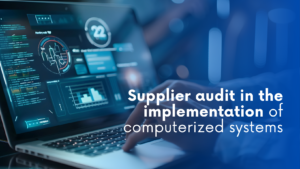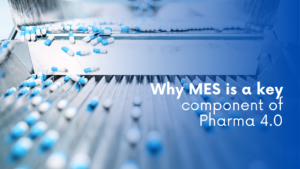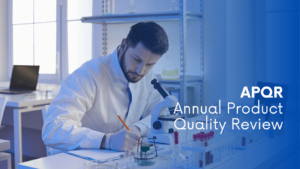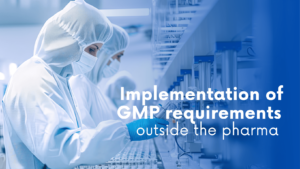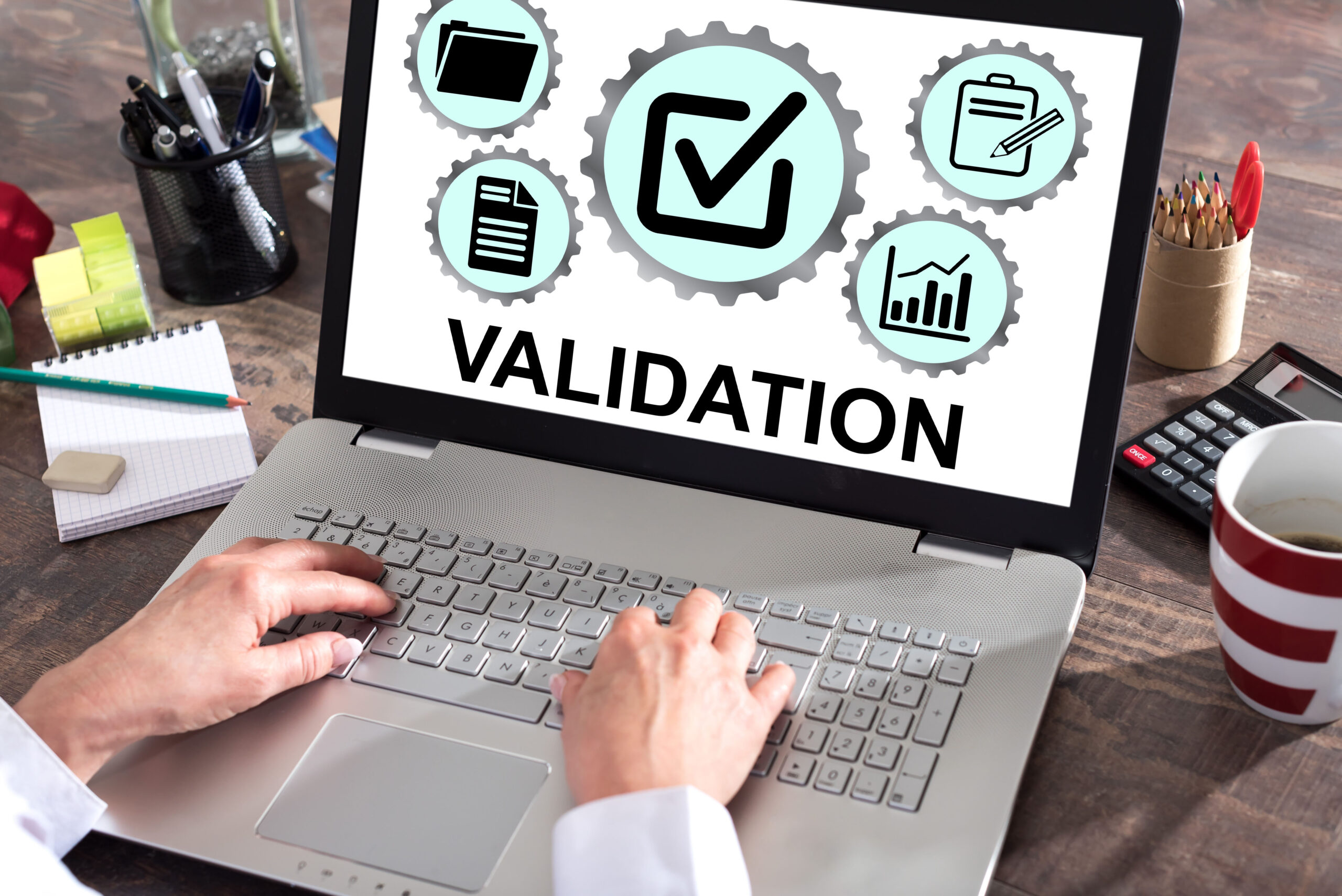Introduction
Pharmaceutical supply chains are inextricably linked to Good Distribution Practices, Good Manufacturing Practices, and the Code of Federal Regulation; these regulations and guidelines ensure that pharmaceutical products are distributed according to appropriate standards and with safety. One of the key elements of ensuring safety and quality in pharmaceutical wholesalers is process validation. Throughout this article, we will consider what validation of pharmaceutical wholesaler processes is and what steps should be taken to comply with Good Distribution Practices, Good Manufacturing Practices, and Code of Federal Regulations.
What is process validation in a pharmaceutical wholesaler?
Validation of processes in a pharmaceutical warehouse is the process of confirming and documenting that all stages of the distribution of pharmaceutical products have been properly developed, implemented and tested to ensure the quality, effectiveness and safety of pharmaceutical products, patient safety and data integrity. It includes a comprehensive assessment and analysis of the processes that enable the storage, handling and distribution of pharmaceutical products throughout the supply chain.
Validation of processes in a pharmaceutical warehouse is crucial because it is closely related to patient safety and ensuring compliance with regulations and industry standards, such as Good Distribution Practice, Good Manufacturing Practice and Code of Federal Regulations. Thanks to properly conducted validation, the Responsible Person in a pharmaceutical wholesaler can verify whether the applied procedures, systems and guidelines meet the quality and safety requirements, and also minimize the risk of errors in the entire distribution process. During the validation, every element of the distribution process is analyzed and evaluated, such as: product data management, batch management, stock acceptance, quality control procedures, temperature storage, customer data management, ordering and fulfillment, returns and complaints as well as logistics and transport. The course of process validation in a pharmaceutical warehouse includes a thorough development of validation tests that precisely describe the procedures, criteria and testing methods. As part of the tests, the staff of the pharmaceutical warehouse together with the person responsible for the validation process conduct trials and tests, document all activities and the results obtained, and then analyze these results.
Validation of processes in a pharmaceutical wholesaler is an essential tool in ensuring the quality, effectiveness and safety of pharmaceutical products in the supply chain. Thanks to properly conducted validation, a pharmaceutical wholesaler can confirm that its procedures are compliant with the guidelines of Good Distribution Practices and other industry standards. This allows minimizing the risk of errors and risks associated with the distribution of pharmaceutical products and contributes to the protection of patients’ health.
Key aspects of process validation in a pharmaceutical wholesaler:
- Mapping full process distribution
The basic and extremely important aspect of process validation in a pharmaceutical warehouse is an accurate mapping of the entire distribution process. This means that all processes (steps) must be accurately identified, described and understood. These steps may include receipt and registration of deliveries, storage of products under appropriate conditions, batch segregation, order picking, as well as customer data management and batch tracking. Mapping the full distribution process gives you complete visibility into how your process is working across the entire supply chain.
In the distribution process mapping, a key aspect is the identification of critical points that are particularly important for pharmaceutical product quality, patient safety and data integrity.
- Analysis of the impact of processes in a pharmaceutical warehouse
Analysis of the impact of processes in a pharmaceutical warehouse is a key tool in identifying, assessing and understanding the effects of activities and operations carried out throughout the distribution process. It consists in examining and measuring the effects of individual processes on the functioning of the warehouse, the quality of services, and above all on the quality of pharmaceutical products, patient safety and the integrity of data that reaches recipients.
- Process risk analysis
Risk analysis of processes in a pharmaceutical warehouse is an important tool that allows you to identify, assess and manage potential threats, errors and risks associated with various stages of product distribution. It aims to minimize the risk and ensure the quality, effectiveness and safety of pharmaceutical products for recipients.
The main elements of risk analysis of processes in a pharmaceutical warehouse:
- Identification of potential threats:
The first step in risk analysis is the identification of potential hazards and risks associated with the various stages of product di`4stribution. These can be e.g. errors in labeling, incorrect storage of products, errors in picking orders, or deficiencies in temperature monitoring during transport.
- Risk assessment:
The next stage is risk assessment, i.e. analysis of the probability of a given threat and the potential effects of its implementation. The risk rating scale can be set based on criteria such as frequency of occurrence, severity of impact, ability to detect and control the hazard.
- Selection and implementation of preventive actions:
Based on the risk assessment, appropriate preventive actions should be taken to help minimize the risk of hazards. These activities may include, among others: introducing additional quality controls, applying additional storage and transport procedures, training employees in safety procedures and protocols, or using modern temperature monitoring systems during transport.
- Risk monitoring and control:
Risk analysis is a continuous process, therefore the risks associated with distribution processes should be regularly monitored and controlled. This allows potential problems to be detected at an early stage and appropriate corrective actions can be taken before the threat becomes an actual problem.
- Risk analysis update:
As distribution processes change or new threats emerge, the risk analysis should be updated. This allows preventive measures to be adjusted accordingly and ensures product quality and patient safety.
Risk analysis of processes in a pharmaceutical wholesaler is a key tool in managing threats and minimizing risks associated with the distribution of products. It allows for the identification of potential threats, risk assessment, implementation of appropriate preventive actions as well as monitoring and updating the risk analysis process to ensure the highest quality and safety standards.
- Validation plan
A pharmaceutical warehouse process validation plan is a document that defines a set of actions, steps and tests to confirm that processes throughout the distribution chain operate as expected, meet industry standards and regulations, and ensure the quality, effectiveness and safety of pharmaceutical products for patients .
- Purpose of validation:
First of all, the process validation plan defines the validation goal, i.e. a clearly defined goal to be achieved by carrying out the validation process. The purpose may include confirmation of compliance with the Good Distribution Practices (GDP) guidelines, identification of risks and threats related to the distribution of pharmaceutical products, assessment of the effectiveness of activities and procedures, as well as ensuring the safety and quality of products for patients.
- Validation scope:
The validation plan specifies the scope, i.e. the range of processes that will be validated. This includes the identification of individual pharmaceutical distribution steps that will be analyzed and verified, including, but not limited to, receipt, storage, order picking and shipment of products.
- Validation tests:
The process validation plan defines validation tests, i.e. detailed procedures and criteria that will be applied at each stage of validation. The tests determine what actions will be taken, what data will be collected, and what qualitative and quantitative indicators will be monitored. Validation tests must comply with the guidelines of Good Distribution Practices and other regulations and standards applicable in the pharmaceutical industry.
- Validation schedule:
The validation plan contains a schedule, i.e. a schedule in which specific stages of process validation will be carried out. The schedule takes into account the time needed to prepare and carry out the validation and sets the deadlines for implementation.
- Analysis and reporting of results:
The validation plan also defines how validation results will be analyzed and reported. After the validation is complete, the results must be analyzed in detail and then documented in the form of a report. The report contains validation conclusions, identifies possible problems, proposes corrective actions, and confirms compliance with guidelines and regulations.
- Execution of tests
Test execution plays an important role in confirming the effectiveness, compliance and quality of activities and procedures. Tests are a key element of validation because they allow you to check in practice whether the developed procedures work as intended and meet the specified requirements.
Test execution may include:
- Inbound process tests
Inbound process tests are aimed at checking the effectiveness and efficiency of procedures related to in-bounding new deliveries to the wholesaler. The acceptance process plays a key role in ensuring the quality and safety of the products that enter the warehouse. These tests verify that all deliveries are checked for compliance with documentation, expiration dates, batch numbers, and that proper receipt and acceptance procedures are followed. This ensures that the pharmaceutical wholesaler accepts only compliant and properly controlled products, minimizing the risk of introducing defective or non-compliant products into circulation.
- Product storage and transport tests:
One of the key aspects in a pharmaceutical warehouse is the proper storage and transport of products. Storage tests monitor the storage conditions of pharmaceutical products, such as temperature, humidity, and lighting, to ensure that they are maintained in accordance with manufacturers’ requirements and in accordance with specified standards. Transportation tests verify that packaging procedures are properly followed and that products are transported under appropriate conditions.
- Order picking process tests:
In a pharmaceutical wholesaler, an important stage is picking orders, i.e. preparing and packing products for shipment to pharmacies and other recipients. The tests of this process may include checking the correctness of labeling (address labels), consistency of batch numbers, accuracy of the number of products being picked and the correctness of packaging stages.
- Product traceability and identification tests:
An important aspect in the validation of processes in a pharmaceutical warehouse is the tracking and identification of products at every stage of distribution. These tests verify that traceability systems are effective and enable precise identification of the origin, route and time of travel of a given product, which is important in the event of a recall of a batch of products.
- Returns and redistribution tests:
Returns and redistribution tests cover processes related to the handling of products returned by customers and the redistribution of these products to other recipients. These tests are designed to ensure that return procedures are properly set up and documented and that redistributable products are properly reviewed for quality and expiration dates before being put back into circulation. These tests verify that the return and redistribution processes comply with guidelines and regulations and ensure that product quality, patient safety and data integrity are protected.
- Emergency procedure tests:
Testing emergency procedures is important in the event of potential threats or errors in the pharmaceutical warehouse. These tests check whether emergency procedures are effective and allow for quick and effective response to various crisis situations.
The tests allow for practical verification whether the developed procedures work as intended, which translates into ensuring product quality, patient safety and data integrity.
- Validation report – confirmation of effectiveness and compliance:
When creating a validation report, a comprehensive analysis of documentation, tests, and historical data should be performed to confirm that all tested processes meet specified requirements and comply with established standards and specifications. This is the last stage of the validation process, which aims to confirm the effectiveness and compliance with the assumptions of the performed validation. In the case of process validation, the report applies to all activities and procedures related to the distribution of products that have previously been subject to risk analysis, development and execution of validation tests.
Basic aspects of a validation report in the context of process validation may include:
- Confirmation of compliance with guidelines and regulations:
Validation is to make sure that all activities in the warehouse comply with the guidelines of Good Distribution Practices, Good Manufacturing Practice, Code of Federal Regulation and other regulations and standards applicable in the pharmaceutical industry.
- Evaluation of validation results:
During the creation of the report, the results of the previously performed validation are analyzed to check whether the assumed goals have been achieved and whether all validation criteria have been met.
- Verification of the quality and effectiveness of processes:
Validation allows you to monitor the quality and effectiveness of distribution processes, which allows you to identify any problems and take corrective action.
The validation report is a document confirming that all activities and procedures in a pharmaceutical wholesaler comply with regulatory requirements and industry standards, which ensures the quality, effectiveness and safety of pharmaceutical products for recipients.
- Managing changes and deviations:
Pharmaceutical wholesalers are subject to dynamic changes, such as regulatory updates, supplier changes, the launching of new products, or modifications to procedures. Changes to this environment must be thought through, controlled and documented to ensure continued product quality and safety. Change management starts with change identification. Each proposed change, regardless of its nature, should be accurately identified and described. A risk assessment is then required to understand the potential impacts of the change on processes, products and quality. Based on this assessment, an action plan should be developed that will define the process of implementing the change. Changes that may affect validation processes require revalidation to ensure that they will not negatively impact the quality and effectiveness of the processes. Process validation may include tests, documentation reviews, and any other activities needed to confirm compliance with established standards.
Deviations, or failures to meet regulatory requirements or standards, also need to be managed in a controlled manner. Any deviation should be reported and documented, followed by analysis to understand the causes and impact of the deviation on processes. Depending on the nature of the deviation, corrective actions may be taken to prevent similar situations from reoccurring in the future. Deviations can come from a variety of sources, such as human error, device issues, or other unforeseen circumstances. Based on the deviation analysis, process revalidation may be necessary to confirm that the quality and safety of the products are still maintained.
Thanks to the effective management of changes and deviations, the pharmaceutical wholesaler is able to maintain a high level of quality and safety of pharmaceutical products, as well as adapt to the changing regulatory and market environment.
The importance of process validation in a pharmaceutical warehouse
Validation of processes in a pharmaceutical wholesaler plays a key role in ensuring the quality, effectiveness and safety of products throughout the entire supply chain. This is an extremely important process that has a direct impact on the health of patients and the reputation of the wholesaler on the pharmaceutical market. Going through a comprehensive validation process makes it possible to meet the law requirements and regulations that aim to ensure the highest standards of quality and safety in the pharmaceutical industry.
One of the key aspects of the importance of process validation is minimizing the risk of errors and risks to product quality and patient safety. By accurately mapping processes and creating validation plan, it is possible to identify potential critical points in the supply chain that can affect quality. This allows for early detection of potential problems and taking appropriate preventive actions to avoid the risk of delivering defective products to recipients.
Process validation is also a key tool in ensuring compliance with legal regulations and industry standards. Many countries regulate the operation of pharmaceutical wholesalers on the basis of Good Distribution Practices, Good Manufacturing Practice and Code of Federal Regulation which require compliance with specific quality and safety standards. The implementation of appropriate validation procedures allows wholesalers to meet these requirements and maintain appropriate certificates and permits that are necessary to operate in the pharmaceutical industry.
It should also be emphasized that process validation has a positive impact on the image of a pharmaceutical wholesaler. Recipients and pharmaceutical manufacturers expect that the wholesalers they cooperate with operate in accordance with the highest quality and safety standards. Appropriate validation confirms that the pharmaceutical wholesaler takes its obligations seriously and cares about patient safety. This builds trust and loyalty among customers and business partners.
In a global context, process validation is also important in the exchange of international pharmaceutical products. Cooperation between different countries and regions requires compliance with international quality standards, which may vary from place to place. Thanks to process validation, pharmaceutical wholesalers can document that they meet both national and international requirements, which facilitates expansion into new markets and international trade.
Summary
Validation of processes in a pharmaceutical warehouse is an extremely important element in ensuring the quality, effectiveness and safety of pharmaceutical products throughout the entire supply chain. By fully mapping processes, creating validation tests, verifying the effectiveness and compliance with procedures, and managing changes, pharmaceutical wholesalers can avoid errors and risks associated with product distribution. Appropriate validation also allows you to meet the requirements of Good Distribution Practices and other industry regulations, which is necessary to conduct legal and compliant activity, as well as to build a positive image in the pharmaceutical industry.
Piotr Frelek
Professional Validation Specialist

